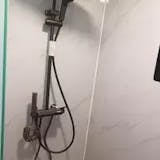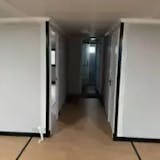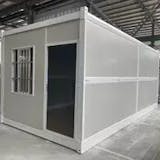Atlanta, a bustling urban center known for its vibrant culture and economic opportunities, is seeing a growing interest in tiny homes. These compact, efficient living spaces are redefining urban living, offering a unique blend of affordability, sustainability, and modern design. In this article, we’ll explore the benefits of living in tiny homes in Atlanta, delve into the customization options available, and understand the local laws and requirements for setting up a tiny home in Georgia.
Benefits of Tiny Homes in Atlanta Tiny homes offer numerous benefits that make them an attractive option for urban living in Atlanta:
-
Cost Savings: One of the most significant advantages of tiny homes is the cost savings. With lower purchase prices, reduced utility bills, and minimal maintenance costs, tiny homes provide a financially sustainable living solution in a city where the cost of living can be high.
-
Sustainability: Tiny homes are environmentally friendly, using fewer resources for construction and daily living. Many tiny homes incorporate sustainable features such as solar panels, rainwater harvesting systems, and energy-efficient appliances, making them an excellent choice for eco-conscious residents.
-
Minimalism: Embracing a minimalist lifestyle is easier with a tiny home. With limited space, you’re encouraged to declutter and focus on what truly matters, leading to a simpler, more intentional way of living.
-
Flexibility: Tiny homes offer flexibility in location and design. Whether you want to live in a bustling urban area or a quiet suburban neighborhood, tiny homes can be adapted to suit your preferences and lifestyle.
Customization Options At My Tiny Home Hub, we understand that every homeowner has unique needs and preferences. That’s why we offer a range of customization options for our expandable pre-fabricated container homes:
- Exterior Colors: Choose from a variety of exterior colors to match your style and blend seamlessly with the surrounding environment.
- Door and Window Types: Select the type and style of doors and windows that best suit your design preferences and functional needs.
- Flooring Options: Customize the flooring in your tiny home, from hardwood to laminate to eco-friendly materials.
- Bathroom Fixtures: Personalize your bathroom with different vanity styles, toilet types, and shower designs.
- Overall Layout: Tailor the layout of your tiny home to fit your lifestyle, whether you need more living space, a larger kitchen, or an additional bedroom.
Laws and Requirements for Tiny Homes in Atlanta Before setting up a tiny home in Atlanta, it’s essential to understand the local laws and regulations. Here are some key points to consider:
- Zoning Regulations: Tiny homes must comply with local zoning laws. In Atlanta, tiny homes are typically classified as accessory dwelling units (ADUs) or single-family dwellings, depending on their size and placement on the property.
- Building Codes: Tiny homes must meet Georgia's building codes, which include safety standards for construction, electrical systems, plumbing, and insulation. Ensuring your tiny home is built to code is crucial for legal compliance and safety.
- Permits: You’ll need to obtain the necessary permits for constructing or placing a tiny home on your property. This may include building permits, electrical permits, and plumbing permits.
- Utility Connections: Ensure your tiny home is connected to essential utilities such as water, sewer, and electricity. This may involve working with local utility providers and obtaining approval for connections.
Conclusion Tiny homes are transforming urban living in Atlanta, offering an affordable, sustainable, and flexible housing solution. By understanding the benefits, exploring customization options, and complying with local laws and requirements, you can successfully integrate a tiny home into your lifestyle. At My Tiny Home Hub, we’re committed to helping you make the most of your tiny living experience, from design to delivery.
FAQs
| Question | Answer |
|---|---|
| Can I customize my tiny home? | Yes, you can select options for exterior colors, door and window types, flooring, bathroom fixtures, and overall layout to suit your preferences. |
| What are the zoning regulations for tiny homes in Atlanta? | Tiny homes must comply with local zoning laws, typically classified as accessory dwelling units (ADUs) or single-family dwellings. |
| Do tiny homes need to meet building codes in Georgia? | Yes, tiny homes must meet Georgia's building codes, including safety standards for construction, electrical systems, plumbing, and insulation. |
| What permits are required for tiny homes in Atlanta? | Necessary permits include building permits, electrical permits, and plumbing permits. Check with local authorities for specific requirements. |
| How are utilities connected to tiny homes? | Ensure your tiny home is connected to essential utilities such as water, sewer, and electricity by working with local utility providers. |
| What are the benefits of living in a tiny home in Atlanta? | Benefits include cost savings, sustainability, minimalism, and flexibility in location and design. |








